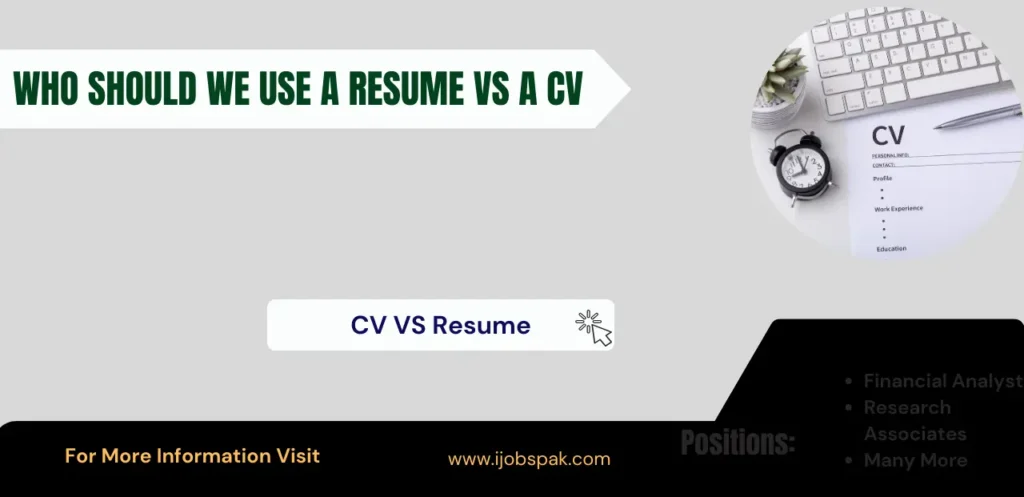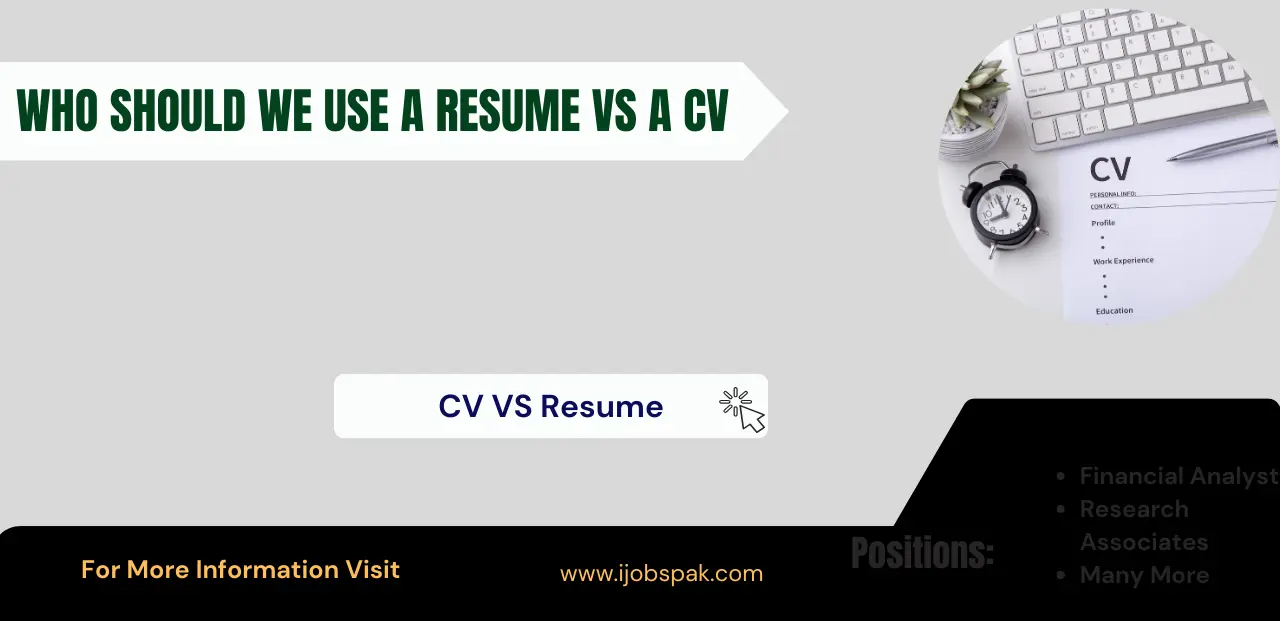A resume and a CV are two essential documents used in job applications, each serving a unique purpose. While both outline your skills and experience, they do so in distinct ways. Understanding when to use a resume or a CV is crucial. In this article, we will explore the differences between the two and provide guidance on when to use each one.
1. What is a Resume?
A resume is a concise document that summarizes your work experience, skills, and education. Typically, it is one to two pages long. Resumes are commonly used for job applications in countries like the United States and Canada. The primary objective of a resume is to highlight your relevant qualifications and convince the employer that you are the right fit for the position.
2. What is a CV?
A CV, or Curriculum Vitae, is a more comprehensive document that provides a detailed account of your professional history. It often spans multiple pages and includes extensive information, such as academic achievements, research experience, publications, and other relevant details. CVs are mostly used for academic roles, research positions, or when applying for jobs in regions like Europe and Asia.

3. Key Differences Between a Resume and a CV
| Aspect | Resume | CV |
|---|---|---|
| Length | 1-2 pages | Multiple pages |
| Content | Highlights work experience, skills, and accomplishments | Covers complete professional and academic history |
| Usage | Used for most company jobs | Primarily for academic, research, or healthcare roles |
| Region | Common in the US, Canada, and some other nations | Widely used in Europe, Asia, and for academia |
| Customization | Customized for each specific job application | Fixed, with everything from career to education included |
4. When to Use a Resume?
A resume is ideal for individuals applying for roles within companies. It is designed to provide a brief overview of your qualifications, making it easy for hiring managers to assess if you are a good fit for the role.
In places like the US and Canada, employers often prefer resumes. If the job description specifies “resume,” it’s essential to follow that request. Resumes are particularly useful when applying for jobs that require a specific set of skills or experience.
Who Should Use a Resume?
- Job seekers targeting roles in companies
- Professionals in the US and Canada
- Applicants for positions in fields like marketing, sales, and technology
5. When to Use a CV?
A CV is most appropriate for positions in academia, research, or healthcare. If you are applying for a job at a university, research institution, or within the medical field, you will need a CV. It gives a detailed account of your work experience, education, and notable achievements like published research.
In many countries outside the US and Canada, a CV is the preferred document. Applicants in Europe or Asia are more likely to submit a CV. Additionally, individuals with long careers, such as professors, doctors, or researchers, should opt for a CV.
Who Should Use a CV?
- Academics and researchers
- Healthcare professionals
- Job seekers in Europe and Asia
- Individuals with detailed career backgrounds
6. How to Choose Between a Resume and a CV?
Deciding whether to use a resume or a CV depends on various factors. First, consider the industry you are applying to. If you’re seeking a corporate position, a resume is the expected document. For academic or research roles, however, a CV is the better option.
Also, check the job listing, as it may specify which document to submit. Geographic location is another key factor resumes are common in the US and Canada, whereas CVs are preferred in many other countries.
Tips to Decide:
- Job Listing: Look for details on whether a resume or CV is requested.
- Role Type: Academic roles generally require a CV, while corporate positions often need a resume.
- Location: Resumes are standard in the US and Canada, while CVs are preferred in Europe and Asia.
7. Tips for Crafting an Impressive Resume or CV
When creating your resume or CV, focus on the following tips to make your document stand out.
For a Resume:
- Keep it concise and focused on the specific job you’re applying for.
- Customize your resume to highlight the most relevant skills and experience.
- Use bullet points and clear headings for easy navigation.
For a CV:
- Include a comprehensive list of your education, career, and research experience.
- Organize the document well, ensuring each section is clearly marked.
- Don’t forget to mention any publications, research, or awards you have received.
Conclusion
Now that you understand the distinctions between a resume and a CV, you can make an informed choice when applying for jobs. For corporate roles, a resume is the way to go, while a CV is the appropriate document for academic or research-based positions. Always review the job description carefully and consider the location to ensure you’re submitting the correct document.
FAQs
Are there any specific guidelines for writing a CV or resume?
Yes, for a resume, keep it concise, use bullet points, and highlight the skills and experiences most relevant to the job. For a CV, include all your relevant professional experiences, publications, and educational achievements, and ensure that sections are clearly labeled.
How do I decide whether to submit a resume or a CV?
Check the job listing for any specific document requirements. Consider the type of job and the country where you’re applying. Corporate roles typically need a resume, while academic, research, and healthcare positions generally require a CV.
What should I include in my CV?
Your CV should include a comprehensive history of your academic and professional experiences, including education, work history, publications, research, awards, and other relevant achievements. Make sure to organize it into clearly defined sections.
